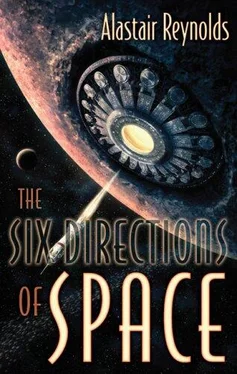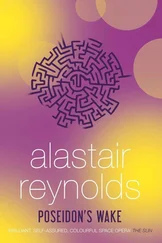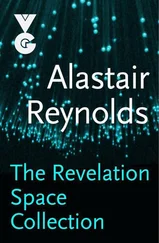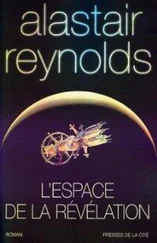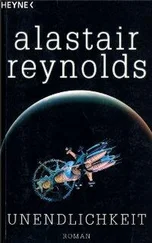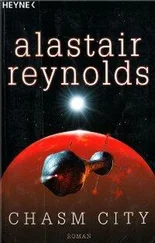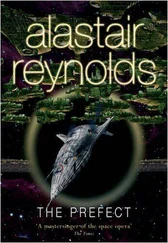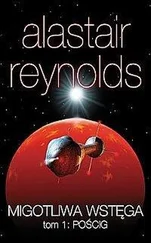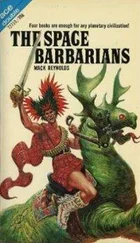“Just what is it about the phantoms that interests you so much, Yellow Dog?”
“Why should you worry about my interest in a phenomenon that doesn’t exist?” I countered.
“Do you believe that, after what you saw on the Burkhan Khaldun?”
“I can only report what I saw. It would not be for me to make inferences.”
“But still.”
“Why are we discussing this, Commander Qilian?”
“Because I’m intrigued. Our perception was that NHK probably knew a lot more about the phenomenon than we did. Your arrival suggests otherwise. They sent you on an intelligence-gathering mission, and the thrust of your inquiry indicates that you are at least as much in the dark as we are, if not more so.”
“I can’t speak for my superiors.”
“No, you can’t. But it seems unlikely that they’d have risked sending a valued asset into a trouble spot like Kuchlug without very good reason. Which, needless to say, is deeply alarming. We thought the core had the matter under control. Clearly, they don’t. Which only makes the whole issue of the phantoms even more vexed and troubling.”
“What do you know?”
He laughed. “You think I’m going to tell you, just like that?”
“You’ve as much as admitted that this goes beyond any petty political differences that might exist between NHK and Kuchlug. Let me report back to my superiors. I’ll obtain their guarantee that there’ll be a two-way traffic in intelligence.” I nodded firmly. “Yes, we misjudged this one. I should never have come under deep cover. But we were anxious not to undermine your confidence in us by revealing the depth of our ignorance on the phenomenon. I assure you that in the future everything will be aboveboard and transparent. We can set up a bilateral investigative team, pooling the best experts from here and back home.”
“That easy, eh? We just shake hands and put it all behind us? The deception on your part, the torture on ours?”
I shrugged. “You had your methods. I had mine.”
Qilian smiled slightly. “There’s something you need to know. Two days ago—not long after we dug that thing out of you—we did in fact send a communique to NHK. We informed them that one of their agents was now in our safekeeping, that she was being more than helpful in answering our questions, and that we would be happy to return her at the earliest opportunity.”
“Go on.”
“They told us that there was no such agent. They denied knowledge of either Ariunaa Bocheng or an operative named Yellow Dog. They made no demands for you to be returned, although they did say that if you were handed over, you’d be of ‘interest’ to them. Do you know what this means?” When I refrained from answering—though I knew precisely what it meant—Qilian continued. “You’ve been disavowed, Yellow Dog. Left out in he cold, like a starving mongrel.”
* * *
His men came for me again, several days later. I was taken to a pressurized boarding platform, a spindly structure cantilevered out from the side of the government building. A cable car was waiting, a dull gray, bulbous-ended cylinder swaying gently against its restraints. The guards pushed me aboard, then slammed the airtight door, before turning a massive wheel to lock it shut. Qilian was already aboard the car, sitting in a dimpled leather chair with one leg crossed over the other. He wore huge fur-lined boots equipped with vicious spurs.
“A little trip, I thought,” he said, by way of welcome, indicating the vacant seat opposite his.
The cable car lurched into motion. After reaching the limit of the boarding area, it passed through a long glass airlock and then dropped sickeningly, plunging down so far that it descended under the lowest level of buildings and factory structures perched on the platform. One of the huge, skeletal legs was rising toward us, the foot raised as if it intended to stomp down on the fragile little cable car. Yet just when it seemed we were doomed, the car began to climb again, creaking and swaying. Qilian was looking at something through a pair of tiny binoculars, some piece of equipment—a probe or drill head, I presumed—being winched up from the surface into the underside of the platform.
“Is there a point to this journey?” I asked.
He lowered the binoculars and returned them to a leather case on his belt. “Very much so. What I will show you constitutes a kind of test. I would advise you to be on your guard against the obvious.”
The cable car slid across the fractured landscape of the moon, traversing dizzyingly wide crevasses, dodging geysers, skimming past tilted rockfaces that seemed on the verge of toppling over at any moment. We rose and descended several times, on each occasion passing over one of the walking platforms. Now and then, there was an interruption while we were switched to a different line, before once more plunging down toward the surface. After more than half an hour of this—just when my stomach was beginning to settle into the rhythm—we came to a definite halt on what was in all respects just another boarding platform, attended by a familiar retinue of guards and technical functionaries. Qilian and I disembarked, with his spurs clicking against the cleated metal flooring. With a company of guards for escort, we walked into the interior of the platform’s largest building. The entire place had an oily ambiance, rumbling with the vibration of distant drilling processes.
“It’s a cover,” Qilian said, as if he had read my thoughts. “We keep the machines turning, but this is the one platform that doesn’t have a useful production yield. It’s a study facility instead.”
“For studying what?”
“Whatever we manage to recover, basically.”
Deep in the bowels of the platform, at a level that must have meant they were only just above the underside, was a huge holding tank that—so Qilian informed me—was designed to contain the unrefined liquid slurry that would ordinarily have been pumped up from under the ice. In this platform, the tank had been drained and equipped with power and lighting. The entire space had been partitioned into about a dozen ceilingless rooms, each of which appeared to contain a collection of garbage, arranged within the cells of a printed grid laid out on the floor. Some of the cells held sizable clusters of junk; others were empty. Benches arranged around the edges of the cells were piled with bits of twinkly rubbish, along with an impressive array of analysis tools and recording devices.
It looked as if it should have been a literal hive of activity, but the entire place was deserted.
“You want to tell me what I’m looking at here?” Qilian indicated a ladder. “Go down and take a look for yourself. Examine anything that takes your fancy. Use any tools you feel like. Look in the notebooks and data files. Rummage. Break stuff. You won’t be punished if you do.”
“This is phantom technology, isn’t it? You’ve recovered pieces of alien ships.” I said this in a kind of awed whisper, as if I hardly dared believe it myself.
“Draw whatever conclusion you see fit. I shall be intensely interested in what you have to say.”
I started down the ladder. I had known from the moment I saw the relics that I would be unable to resist.
“How long have I got? Before I’m judged to have failed this test, or whatever it is.”
“Take your time,” he said, smiling. “But don’t take too much.”
There seemed little point agonizing over which room to start with, assuming I had the time to examine more than one. The one I chose had the usual arrangement of grid, junk, and equipment benches. Lights burned from a rack suspended overhead. I stepped into the grid, striding over blank squares until she arrived at a promising little clump of mangled parts, some of them glittery, some of them charred to near blackness. Gingerly, I picked up one of the bits. It was a curving section of metallic foil, ragged along one edge, much lighter and stiffer than I felt it had any right to be. I tested the edge against a finger and drew a bead of blood. No markings or detail of any kind. I placed it back down on the grid and examined another item. Heavier this time, solid in my hands, like a piece of good carved wood. Flowing, scroll-like green patterning on one convex surface: a suggestion of script, or a fragmented part of some script, in a language I did not recognize. I returned it to the grid and picked up a jagged, bifurcated thing like a very unwieldy sword or spearhead, formed in some metallic red material that appeared mirror—smooth and untarnished. In my hands, the thing had an unsettling buzzing quality, as if there was still something going on inside it. I picked up another object: a dented blue-green box, embossed with dense geometric patterns, cross-woven into one another in a manner that made my head hurt. The lid of the box opened to reveal six egglike white ovals, packed into spongy black material. There were six distinct spiral symbols painted onto the ovals, in another language that I did not recognize.
Читать дальше
